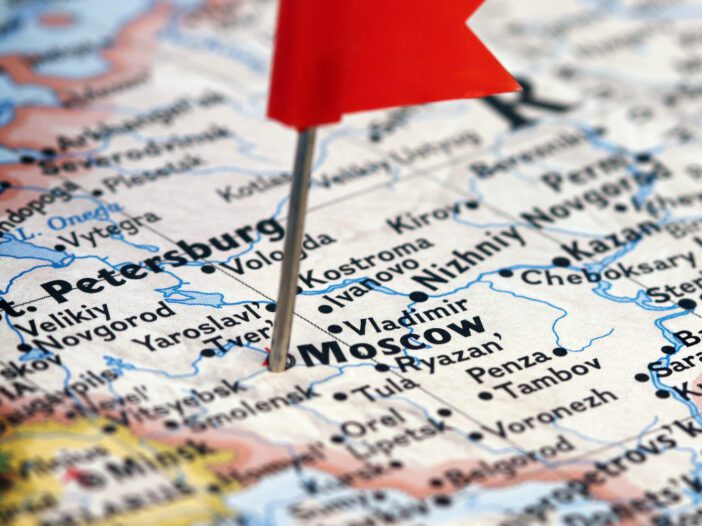For several decades, a global order has governed the world, administering its ‘medicine’ of globalism and liberal democracies.
The belief is that the Western world prospered and experienced unprecedented societal growth because of this governance system.
What’s good for the goose must be good for the gander.
However, beyond North America, Europe and Australasia, the push to bring such change has not only seen chaos, unrest and bloodshed.
Worse still, it’s escalated over time.
Global foreign relations deteriorated gradually in the 1970s after the US defeat in Vietnam. This accelerated in the 1990s and early 2000s with the Gulf War, the Balkan wars, the civil wars in various parts of Africa and Central America, etc.
Things never became the same after 11 September when the world witnessed the terrorist attack. Various polls point to more than half of the American population believe it was an inside job. This eventually brought the US to invade Afghanistan and Iraq.
Several years after, ‘the Arab Spring’ led to major upheaval in the Middle East and North Africa and the collapse of Libya, Iraq and it nearly brought down Tunisia, Egypt and Syria.
Just as this global order was set to achieve domination by requiring nations submit to it or face exclusion, it committed several major tactical errors.
The system was set up to fail as it’s funded by a fiat currency system that’s backed by oil, or what we know as the US petrodollar system.
But the flaws sealed its fate. These include its reliance on international intrigue, false flags, corporate media propaganda and the use of blackmail against leaders to turn them into captives (to understand ‘elite capture’, please read this article).
But one major blunder I want to highlight is the Maidan incident in Ukraine in 2014 that may well have been the globalist elites’ Elba moment. For more detail, I recommend you watch Oliver Stone’s ‘Ukraine on Fire’ to see the role of the West in creating the conflict that sparked the 2022 February invasion by Russia.
Today I’ll look into the account from the key antagonist of the West and show you how and why this blunder has sealed the fate of globalism.
It’s important that you proceed with this article with an open mind and try to set aside your emotions and ideological preferences.
Digging into Putin’s mind — The historic Tucker Carlson interview
Last Tuesday, the maverick US journalist, Tucker Carlson, went to the Kremlin and interviewed Russian President Vladimir Putin.
In the eyes of a large proportion of the polite society in the West, President Putin is ‘persona non-grata’. Feared, hated and dismissed as a murderous, calculating dictator, many believe that he deserves no media coverage, except of his demise.
However, it’s undeniable that we should hear President Putin’s story, especially given he’s the leader of Russia.
Russia is the world’s top five economies and is a military superpower in its own name. Not only that, Russia is one of the world’s largest exporters of raw materials, especially to the European Union.
Tucker has given the world this chance.
The interview covered much ground. But more issues remain unaddressed.
I encourage you to watch this interview in your own time by clicking here.
At this point, I want to digress briefly to clarify a few things, to minimise any misunderstanding.
Firstly, in writing about President Putin, I’m neither endorsing his actions nor wanting to take sides in the conflict. I’m merely recognising that he is a major mover in the world. Therefore it’s critical to hear his side of the story, whether you agree or trust what he says.
Secondly, I recognise the biggest victims in this tragic episode are the civilians caught up in this conflict. This extends to the relatives of those who died and are maimed in this fight.
Thirdly, I believe that our media and leaders have impaired our ability to reach a higher level of understanding of what’s happening in this world through emotive reporting and slanted perspectives. Indeed, their credibility is under serious question given their long list of lies and deceptive reporting on other historical events.
In the two hours, the two discussed Russian history, why the Russia-Ukraine conflict happened, the role of US and its NATO allies in this conflict, the future development of global foreign relations and economic trade and the mindset of Russians and the nation State.
While I could cover each topics in more detail, I want to focus on the financial, geopolitical and societal takeaways in this interview.
The first is that the West has only recently awaken to the fact that Ukraine has lost this conflict. Up until late-2023, our leaders and the corporate media continually reported that Russian forces were unable to finish their assault in a short time frame meant that their defeat was imminent.
However, recent reports have changed tone as it’s increasingly clear that Russia has the upper hand. President Putin and the Russian army have dealt a crippling blow to the West, but not the Western nation’s military which didn’t send regular troops to engage Russian forces.
A surprising point President Putin made in the interview was that Western nations sent mercenary forces and US$72 billion to fund the war against Russia.
Interestingly, the US House and the defence agencies have sought to investigate where the funds ended up. Indeed, weapons and funds have appeared in other regions including Iran and Gaza.
The problem with the West was that they misjudged the strategy that the Russian military adopted in this conflict. Putin made it clear that his objective in Ukraine was to demilitarise the country and remove the cultural influence and ties to Neo-Nazism.
Given Russia’s superior strategic position, Putin’s tone in the interview conveyed clearly that he didn’t fear the threats from his enemies abroad and inside Russia.
He also dropped a bombshell that he sought to negotiate for peace with the West since 2000 but these were rejected on each occasion.
This was factual, rather than rhetoric. The Western corporate media reported this regarding the 2022 conflict from the accounts of Ukrainian politicians.
Putin has dealt a major blow against the credibility of the Western ruling class — the elected governments, the lobbyists in the military industrial complex, corporate media, the intelligentsia and multinational corporations. It’s for that same reason they have engaged in censorship, cancel culture and fact-checking in a desperate attempt to remain relevant.
The second is that President Putin plainly laid out that attempts by the West to weaponise the US dollar to sanction Russia and cripple its economy has backfired.
In as early as March 2022, Russia had sidestepped the move to destroy its economy by locking it out of the international SWIFT system. It did so by pegging the ruble to gold, thereby preventing an economic collapse like what happened in Southeast Asia in 1997–98.
Furthermore, many nations refused to follow suit with US, the EU, Canada, Australia and Japan in banning Russian energy and commodity exports. As a result, their economies suffered as energy prices escalated and inflation ravaged the world.
In Putin’s eyes, the attempt by the globalist world order to use its playbook has accelerated its demise. He pointed out that it instead pushed many nations away from the existing world order to embrace an alternative financial and political alliance in the form of the BRICS coalition.
The third is that Putin showed the stark contrast between social cohesion in Russia and many Western nations. We know that Russia has its social and political problems given the dominance of its ruling party and a rapidly ageing population. However, for what it’s worth, the ruling party receives more public support than most Western governments leaders. Furthermore, Putin credits the Russian society as less divided because there is a national heritage. The government shuns social and ideological pluralism.
If you observe Putin’s demeanour in the interview, he was calm, stern and of a clear mind. He didn’t behave impulsively when confronted by difficult questions. Like him or loathe him, he clearly showed he was in control.
There’s no denying he’s a dangerous enemy.
Gold the deciding factor in the titanic global order clash
It’s hard to conclude if Tucker Carlson set up this interview to improve Putin’s image in the West or just let Putin deliver the other side of the story to balance one’s perception. But what’s clear from this interview that the goals the current global order set out have failed miserably.
Globalism is on the decline. Nationalism is on the rise.
Even the architects of globalism recognise this year in their annual Davos Summit that their game is up.
They’ve lost the Global Information War and their ideology lost its legitimacy to govern.
We’ve seen the downfall of their acolytes including Germany’s Angela Merkel, Italy’s Mario Draghi, New Zealand’s Jacinda Ardern, The Netherlands’ Mark Rutte, to name a few.
Leaders that seek its own people’s interest ahead of international unity will gain more approval.
Furthermore, the petrodollar system has lost its political and financial invincibility. Resource rich nations can protect their currency and economy from financial isolation.
When the Russian Central Bank tied the ruble to gold temporarily in March 2022, it sent a strong message to the world that gold is more than just a ‘barbarous relic’. It’s money of the highest order.
Whether our own leaders in the West will heed this lesson and change tack to protect its own people and economy is up in the air. For now they’re more intent on opening their borders to immigrants, silencing their citizens and destroying their own culture.
And the people are rising up and pushing back. Just look at the farmers’ protests in Canada, France and the Netherlands.
Globalism is now in its death throes. The nationalist multipolar world order is dawning.
Own the secret weapon of the coming multipolar world order
In Sun Tzu’s Art of War, he wrote that the best way to win a war is without firing a single shot.
One can use politics or resources to bring your foe to negotiate with you. A physical conflict is the last resort when there’re no options.
In the modern world, we’ve a new dimension of warfare in information. Truth unites, lies divide.
A stable society requires honest money, truthful communication and a coherent national spirit.
We should go back to the basics.
Gold, with its 6,000 years’ history, will reassert its might as the petrodollar continues its decay. The global world order’s blunders will accelerate its demise.
My hope is that we needn’t spark a proxy war in another country to finally see the end of this diabolical system that’s brought mankind grief in the last century.
I invite you to learn more about how to build up your wealth in gold and potentially speculate in gold mining stocks.
Please check out my one-stop precious metals investment newsletter, The Australian Gold Report, and sign up today!
God bless,
 |
Brian Chu,
Editor, Gold Stock Pro and The Australian Gold Report

